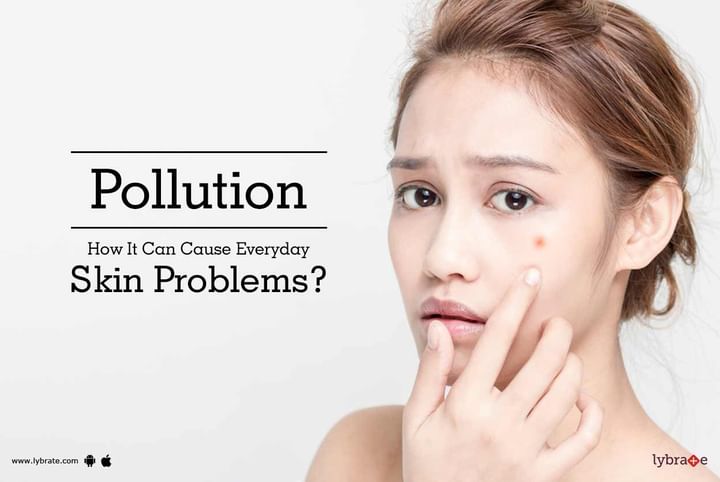Pollution - How It Can Cause Everyday Skin Problems?
With the advancement of technologies, comes a fee and that is pollution. Car fumes and smoke from industrial factories combined with the UV rays of the sun is more harmful than can be imagined. The most affected area is the skin.
Skin problems
The skin's primary purpose is to act as a protector, providing a barrier against toxic chemicals and radiation. According to dermatologists, the problems of uneven skin tone and darkened complexion is due to the pollution in the environment. It accelerates ageing. Skin cancer, connective tissues disease, halogen acne and chemical depigmentation are some of the skin problems.
Pollution affects skin
When pollution comes into direct contact with the skin, the polluted particles begins to infiltrate the deeper epidermis layers. This infiltration causes the skin to become inflamed and dehydrated. A cellular-level reaction also takes place which makes the skin lose its firmness and elasticity. Pollution breaks down the collagen present in the skin which makes the skin impaired from further functioning as a barrier. The formation of wrinkles, lines and loss in the volume are the typical signs of the skin being affected. Acne and dermatitis are also signs found in the earlier stage of skin problems due to pollution.
Diagnosis
If an individual wants to examine the texture of the skin, then a full facial assessment can be done. The examination should deal thoroughly with the formation and patterns of the lines and wrinkles. One must note if the ageing of the skin is in parity with the ageing of the person. Sometimes the skin problems may be associated with hyperpigmentation and to check if the lines extend till the neck. Along with the face, the hands should also be examined because these two are the main areas that remain exposed mostly with a chance of getting affected by environmental pollutants.
Three ways of managing the skin problems
- Sunscreen: The most common way to keep your skin guarded against the radiation and pollutants is to use sunscreen. It inhibits the harmful effects of UV rays on the skin. It acts as a physical barrier protecting the skin from coming into contact with the ultraviolet radiation. Dermatologists recommend SPF 50 for complete protection. It is to be noted that the SPF is not combined with foundations or moisturisers and it tends to become less active.
- Cleansing: At the end of the day, it is always advisable to cleanse the face thoroughly to remove the invisible toxins that gather on the skin over the day. Cleansing, as well as exfoliation is an excellent remedy to improve your skin texture. Products containing alpha hydroxy acids (AHA) is recommended to be used as they chemically exfoliate the skin and help in the development of new skin cells.
- Antioxidants: After coming into contact with the skin, pollution forms free radicals or molecules that destruct the skin by breaking the collagen. To prevent the skin destruction from happening, antioxidants are to be used. They are the nutrient that helps in neutralising the free radicals and diminishes the risk of skin damage. It helps the skin to repair itself. If you wish to discuss about any specific problem, you can consult a Dermatologist.



+1.svg)
